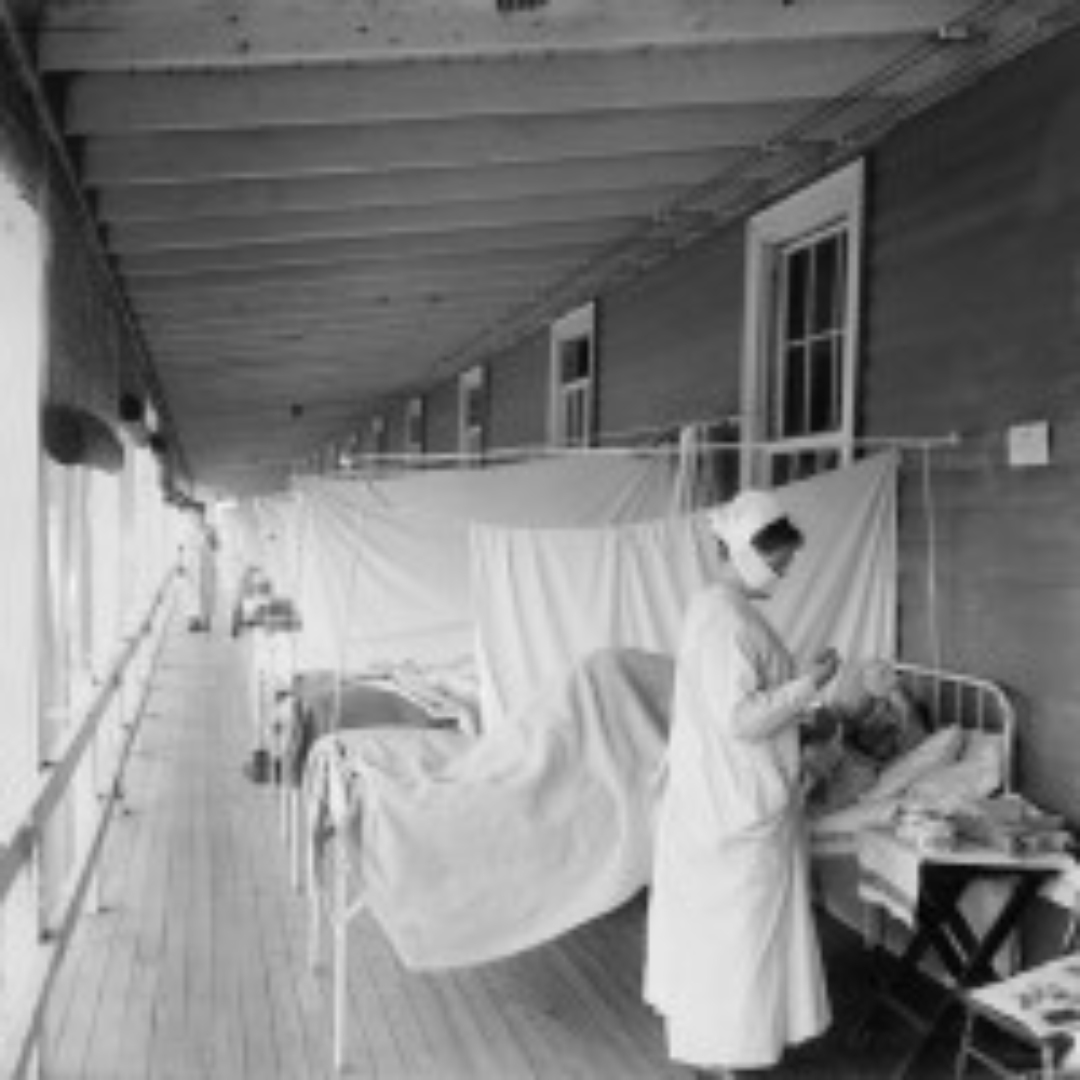
The first civilian influenza cases were reported in Boston
On Sept. 11, 1918, the first civilian influenza cases were reported in Boston. By September 16, there were hundreds of influenza cases in the city, causing overcrowding in both City Hospital as well as Massachusetts General.
Six cases even appeared at the Charles Street jail, and countless more Bostonians were languishing in their homes. A total of 19 victims had died thus far; within a week that number would jump to 334. Because of the rapidity with which influenza had spread to and within Boston’s civilian population, local health experts assumed that the epidemic would quickly burn itself out with no interventions necessary.
“I believe the plateau, if not the peak, of the contagion has been reached,” Boston’s health commissioner Dr. William C. Woodward–in office just seven weeks–told the public. “There is a chance that we shall continue at the same level until the first of the week and then a steady downward tendency may be expected.” He called on the public to avoid fatigue and crowds, and to remain at home and rest if sick. Although there were cases circulating in the schools, no deaths yet had been reported among children. Woodward therefore felt confident in keeping schools open for the time being.
The medical director for Boston schools, Dr. W. H. Devine, disagreed, arguing that there was no reason for greater alarm than there had been the previous week. Furthermore, he believed Boston’s 100,000 students were safer in school, where trained nurses could examine them if they fell ill. Nevertheless, Boston School Superintendent Frank V. Thompson arranged to have all cases of influenza among students reported to his office as quickly as possible so that he could monitor the situation more closely.
That situation was growing increasingly bleak. There were thousands of cases in and around Boston, with dozens of deaths occurring daily due to influenza and pneumonia.
Tags:
Source: Influenza Encyclopedia.
Credit: Photo: Courtesy University of Michigan Center for the History of Medicine.
